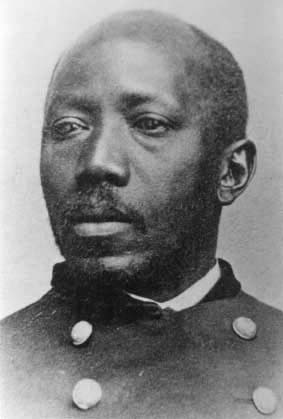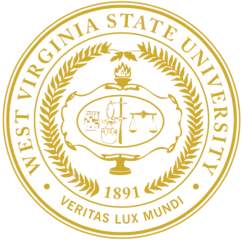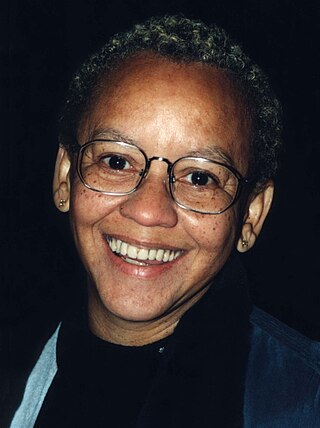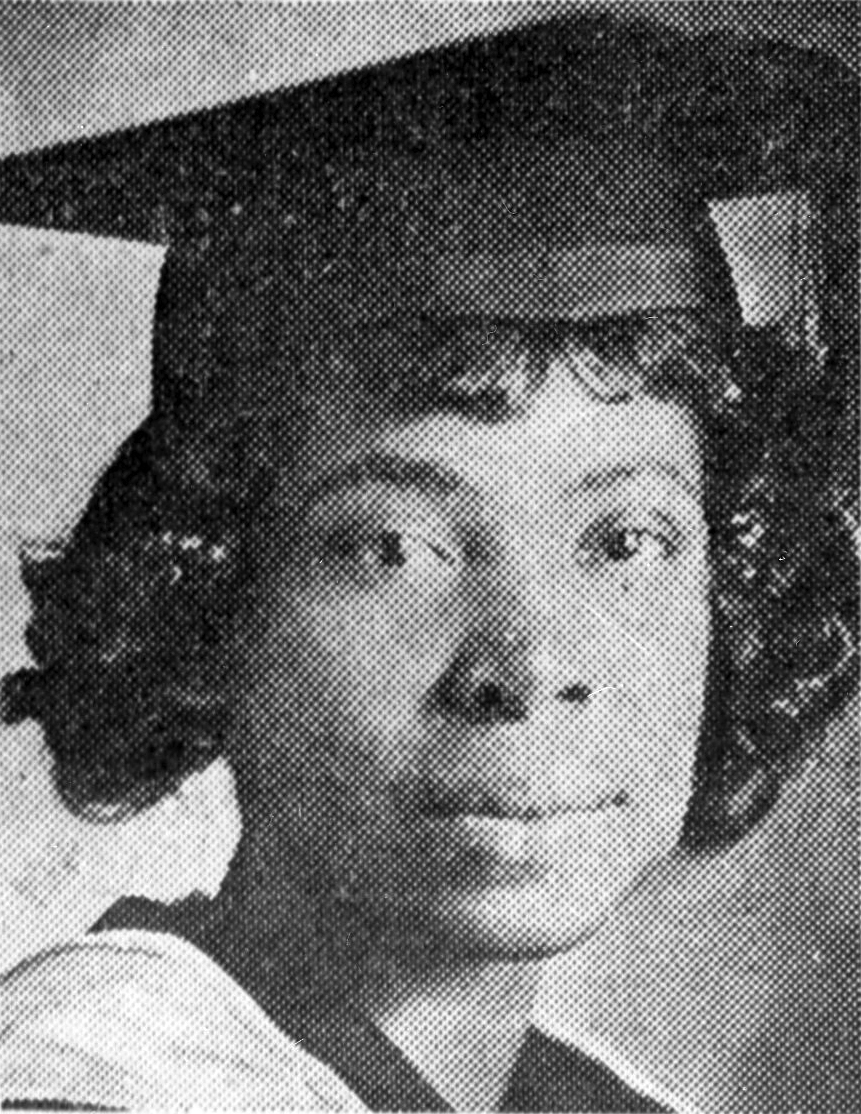
Frederick Douglass was an American social reformer, abolitionist, orator, writer, and statesman. After escaping from slavery in Maryland, he became a national leader of the abolitionist movement in Massachusetts and New York, becoming famous for his oratory and incisive antislavery writings. Accordingly, he was described by abolitionists in his time as a living counterexample to enslavers' arguments that enslaved people lacked the intellectual capacity to function as independent American citizens. Northerners at the time found it hard to believe that such a great orator had once been enslaved. It was in response to this disbelief that Douglass wrote his first autobiography.

Martin Robison Delany was an American abolitionist, journalist, physician, military officer and writer who was arguably the first proponent of black nationalism. Delany is credited with the Pan-African slogan of "Africa for Africans." Born as a free person of color in Charles Town, Virginia, now West Virginia, and raised in Chambersburg and Pittsburgh, Pennsylvania, Delany trained as a physician's assistant. During the cholera epidemics of 1833 and 1854 in Pittsburgh, Delany treated patients, even though many doctors and residents fled the city out of fear of contamination. In this period, people did not know how the disease was transmitted.
Black History Month is an annual observance originating in the United States, where it is also known as African-American History Month. It has received official recognition from governments in the United States and Canada, and more recently has been observed in Ireland and the United Kingdom. It began as a way of remembering important people and events in the history of the African diaspora. It is celebrated in February in the United States and Canada, while in Ireland and the United Kingdom it is observed in October.

Carter Godwin Woodson was an American historian, author, journalist, and the founder of the Association for the Study of African American Life and History (ASALH). He was one of the first scholars to study the history of the African diaspora, including African-American history. A founder of The Journal of Negro History in 1916, Woodson has been called the "father of black history." In February 1926, he launched the celebration of "Negro History Week," the precursor of Black History Month. Woodson was an important figure to the movement of Afrocentrism, due to his perspective of placing people of African descent at the center of the study of history and the human experience.

West Virginia State University (WVSU) is a public historically black, land-grant university in Institute, West Virginia. Founded in 1891 as the West Virginia Colored Institute, it is one of the original 19 land-grant colleges and universities established by the second Morrill Act of 1890, which evolved as a diverse and inclusive campus. Following desegregation, WVSU's student population slowly became more white than black. As of 2017, WVSU's student body was 75% white and only 8% African-American.

Plum Bun: A Novel Without a Moral is a novel by Jessie Redmon Fauset first published in 1928. Written by an African-American woman who, during the 1920s, was the literary editor of The Crisis, it is often seen as an important contribution to the Harlem Renaissance.
The Association for the Study of African American Life and History (ASALH) is an organization dedicated to the study and appreciation of African-American History. It is a non-profit organization founded in Chicago, Illinois, on September 9, 1915, during the National Half Century Exposition and Lincoln Jubilee, as the Association for the Study of Negro Life and History (ASNLH) by Carter G. Woodson, William B. Hartgrove, George Cleveland Hall, Alexander L. Jackson, and James E. Stamps, and incorporated in Washington, D.C., on October 2, 1915,. The association is based in Washington, D.C. In 1973, ASNLH was renamed the Association for the Study of Afro-American Life and History.

Jewell Parker Rhodes is an American bestselling novelist and educator.
The University of Virginia College of Arts & Sciences is the largest of the University of Virginia's ten schools. Consisting of both a graduate and an undergraduate program, the College comprises the liberal arts and humanities section of the University.

Lewis Woodson was an educator, minister, writer, and abolitionist. He was an early leader in the African Methodist Episcopal Church (AME) in Ohio and Pennsylvania. Woodson started and helped to build other institutions within the free African-American communities in Ohio and western Pennsylvania prior to the American Civil War.

Patricia C. "Pat" McKissack was a prolific African American children's writer. She was the author of over 100 books, including Dear America books A Picture of Freedom: The Diary of Clotee, a Slave Girl;Color Me Dark: The Diary of Nellie Lee Love, The Great Migration North; and Look to the Hills: The Diary of Lozette Moreau, a French Slave Girl. She also wrote a novel for The Royal Diaries series: Nzingha: Warrior Queen of Matamba. Notable standalone works include Flossie & the Fox (1986), The Dark-Thirty: Southern Tales of the Supernatural (1992), and Sojourner Truth: Ain't I a Woman? (1992). What is Given from the Heart was published posthumously in 2019.
The Journal of African American History, formerly The Journal of Negro History (1916–2001), is a quarterly academic journal covering African-American life and history. It was founded in 1916 by Carter G. Woodson. The journal is owned and overseen by the Association for the Study of African American Life and History (ASALH) and was established in 1916 by Woodson and Jesse E. Moorland. The journal publishes original scholarly articles on all aspects of the African-American experience. The journal annually publishes more than sixty reviews of recently published books in the fields of African and African-American life and history. As of 2018, the Journal is published by the University of Chicago Press on behalf of the ASALH.

Yolande Cornelia "Nikki" Giovanni Jr. is an American poet, writer, commentator, activist, and educator. One of the world's most well-known African-American poets, her work includes poetry anthologies, poetry recordings, and nonfiction essays, and covers topics ranging from race and social issues to children's literature. She has won numerous awards, including the Langston Hughes Medal and the NAACP Image Award. She has been nominated for a Grammy Award for her poetry album, The Nikki Giovanni Poetry Collection. Additionally, she has been named as one of Oprah Winfrey's 25 "Living Legends".
Richard A. Yarborough is Professor of English and African-American literature and a Faculty Research Associate with the Ralph J. Bunche Center for African American Studies at the University of California, Los Angeles. He is also an editor of The Heath Anthology of American Literature.

Sarah Mapps Douglass was an American educator, abolitionist, writer, and public lecturer. Her painted images on her written letters may be the first or earliest surviving examples of signed paintings by an African-American woman. These paintings are contained within the Cassey Dickerson Album, a rare collection of 19th-century friendship letters between a group of women.

Louise Daniel Hutchinson was an American historian. She was the former Director of the Research at the Anacostia Community Museum. Growing up in Washington, D.C., Hutchinson was exposed to the Civil Rights Movement and the importance of community. Hutchinson worked closely with the African American community of Washington, D.C. and staff at the Smithsonian Institution to help build the Anacostia Community Museum. She was a historian of the Anacostia community.

Gertrude P. McBrown (1898-1989) was an American poet, playwright, educator, actress, and stage director. Although her career lasted well beyond the 1930s, she is sometimes grouped with writers of the Harlem Renaissance.
In a unanimous vote, on July 1, 2019, the City Council of Charlottesville, Virginia, established a new city holiday, Liberation and Freedom Day, to be celebrated on March 3. Union Army troops, under the command of Major General Philip Sheridan, arrived in Charlottesville on March 3, 1865, liberating over 14,000 enslaved workers. "Blacks were the majority race in the Charlottesville-Albemarle area." In the 1870 Census, the first one in which Charlottesville appears, its population was 2,838.

John Warren Davis was an American educator, college administrator, and civil rights leader. He was the fifth and longest-serving president of West Virginia State University in Institute, West Virginia, a position he held from 1919 to 1953. Born in Milledgeville, Georgia, Davis relocated to Atlanta in 1903 to attend high school at Atlanta Baptist College. He worked his way through high school and college at Morehouse and graduated with a Bachelor of Arts degree in 1911. At Morehouse, Davis formed associations with John Hope, Mordecai Wyatt Johnson, Samuel Archer, Benjamin Griffith Brawley, Booker T. Washington, and W. E. B. Du Bois. He completed graduate studies in chemistry and physics at the University of Chicago from 1911 to 1913 and served on the faculty of Morehouse as the registrar and as a professor in chemistry and physics. While in Atlanta, Davis helped to found one of the city's first chapters of the National Association for the Advancement of Colored People (NAACP).
Bessie Woodson Yancey was an African American poet, teacher, and activist, whose only published poetry collection, 1939's Echoes from the Hills, was "perhaps the earliest example of Affrilachian children's literature."













